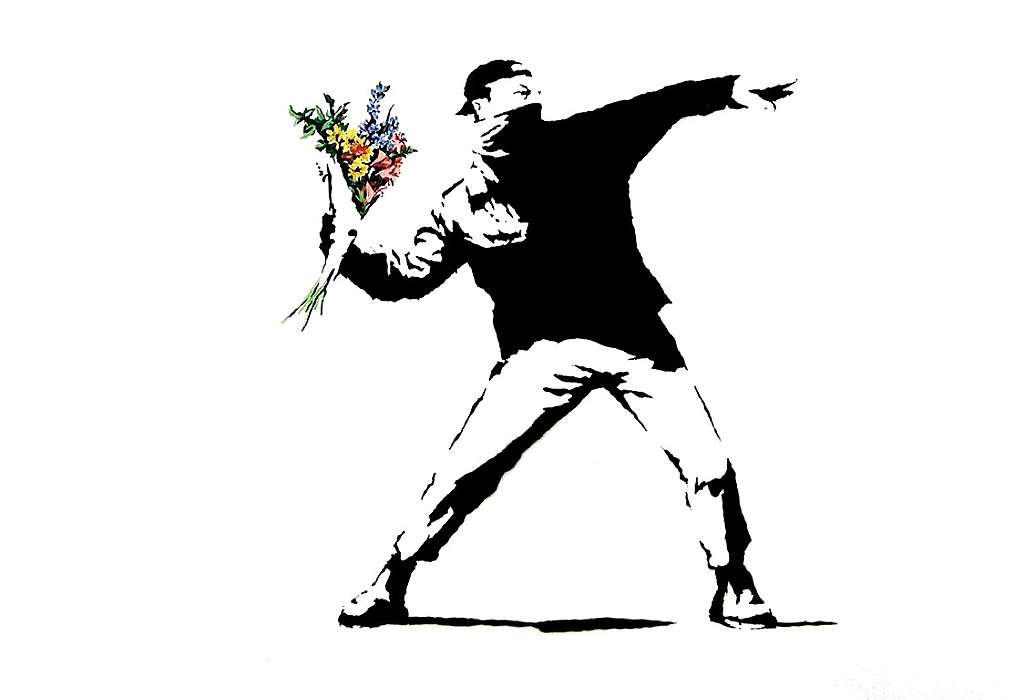How Deep Does the Well Go?
In times like these, to care is both a burden and a blessing. You may or may not identify as an activist, but if you’ve staked your caring heart on social justice, the climate, or the environment, then this article is for you. This is a chance to take a few minutes to unglue your attention from the news, or the campaign, (or the frustrations of disrupted campaigning), and take a look at your own wellbeing. Our focus on the work can give our lives meaning, but there is often a cost in terms of our wellbeing. Let’s see what we can do about that. Let’s see what it might be like if we considered the inner work of activism as something equally important to, and hopefully not separate from the organising, the petitions, the protests, the outer work.
I don’t care what we call this inner work, or how we tackle it. The inner work could take the form of regenerative activism, mental health, good group processes, deep ecology, spirituality, or just honestly and skillfully addressing our own internalised racist, sexist, or other oppressive tendencies. However we approach it, the state of our inner world and inner work determines our resilience when things go wrong or we feel disrupted. And states of disruption (not just from covid-19) are where we’re going to be living for the foreseeable future. Even in the best case scenarios that we’re working towards. So let’s take a deep breath, together, and acknowledge that the Covid pandemic is just making more tangible the overall pattern of escalating disruption that’s coming home to us even in sheltered Aotearoa.

To work with this reality, thankfully there are patterns, maps, and guides to doing the inner work of activism. Here are a few of the patterns that I’ve seen, that you might encounter in yourself or other activists you care about or work with. Hang in there with me and please don’t skim this. Take some time to really question as you read. Doing a bit of digging now could really help your wellbeing, and that’s essential both for you and for the causes you care about.
The pattern of self dismissal
How could you, as an individual, be of any importance in comparison to the massive systemic injustices, the immensity of the climate crisis, the needs of others who have less privilege than you? Aren’t your feelings, hurts, concerns, and hopes, just a hindrance, to be dismissed? Does self dismissal feel necessary in order to be strong, reliable, focused, or rational? Does self dismissal seem necessary in order to receive care, or to stop others getting too close? Consider for a moment some specific significant occasions in your recent life. Ask yourself, whether you felt welcomed and attended to with curiosity and care, by yourself. Or did you get dismissed? If self dismissal occurred, was it subtle, or overt, or habitual? Consider whether the self dismissal made you feel in any way good inside, or if it actually helped you in any way, or not. What is it like when you feel your way into this question? If sadness arises for how you get treated by yourself, welcome this as a form of care for yourself.
The pattern of self sacrifice
Does some part of you believe that in order for something good to happen, something bad also needs to happen? Isn’t self sacrifice necessary, in order to feel like a good person, even if only for a little while? Think of some recent occasions in which you sacrificed your immediate need (or the needs of those close to you) for your cause or activism. Was the sacrifice a conscious decision, or was it habitual or automatic? Would you be happy for someone else who you loved to be making a similar sacrifice? Does self sacrifice also allow room for times of feeling abundance and generosity towards yourself, or not? Has any sense of yourself as separate from the cause or the activism, been sacrificed? Feel into how the self sacrifice actually makes you feel at the time of sacrifice, and also as you reflect on it.
The pattern of externalisation
Isn’t everything that’s important or interesting or worthwhile, located outside of you? Does your sense of yourself, and what you want, get determined by how things feel inside of you? Or do you experience yourself more as a reflection of other’s perceptions – you know that you’re OK when someone smiles at you, or when your cause is validated? If you don’t have a sense of you being the prime mover and director of your life, is it because there’s nothing much inside of you, or is it that you just never got a chance to really look in that direction? How does it feel to ask yourself these questions?

The resurgence of covid-19 in Aotearoa, the climate crisis, systemic injustice… these things are hard. They are the hard work for those who choose to care and engage with them, and hard just to live with. So I’m sorry to have been asking you some hard questions on top of this, that wellbeing takes hard work. I could have written this more simply, by posting yet another list of generic mental health advice that you probably know already: Be mindful. Exercise and eat well. Affirm yourself. Practice gratitude. Etc. These practices are great. But they’ll probably feel burdensome or relatively ineffective if there are deeper unconscious patterns inside of you like those above, unexamined, and undealt with on intellectual or emotional levels. In our activism we rightly ask for deep and significant changes in the world, for good. How about for ourselves, too? This has been a year of massive disruption. Let’s allow this disruption of business as normal to be an opportunity to disrupt our internal patterns too, and then reorganise out of that disruption to give ourselves something better.
About the author: Michael Apathy is a psychotherapist based in Ōtautahi/Christchurch. He takes part in actions with Greenpeace, Extinction Rebellion, and 350 Aotearoa, whenever he can, and also runs workshops on activist wellbeing.
